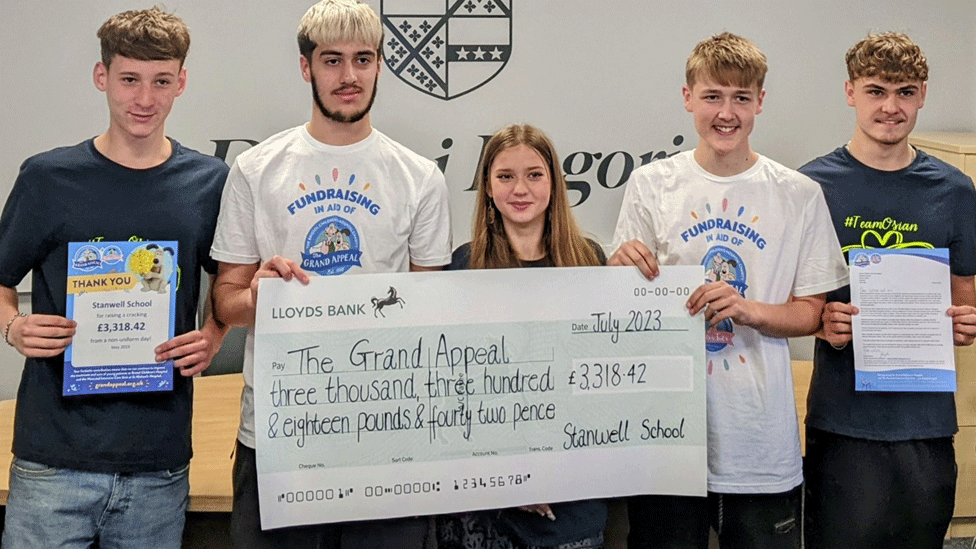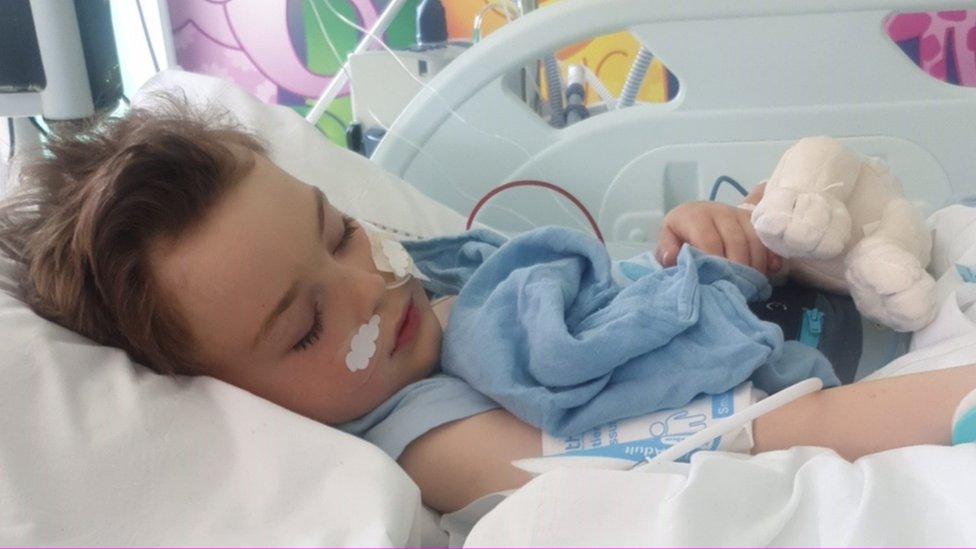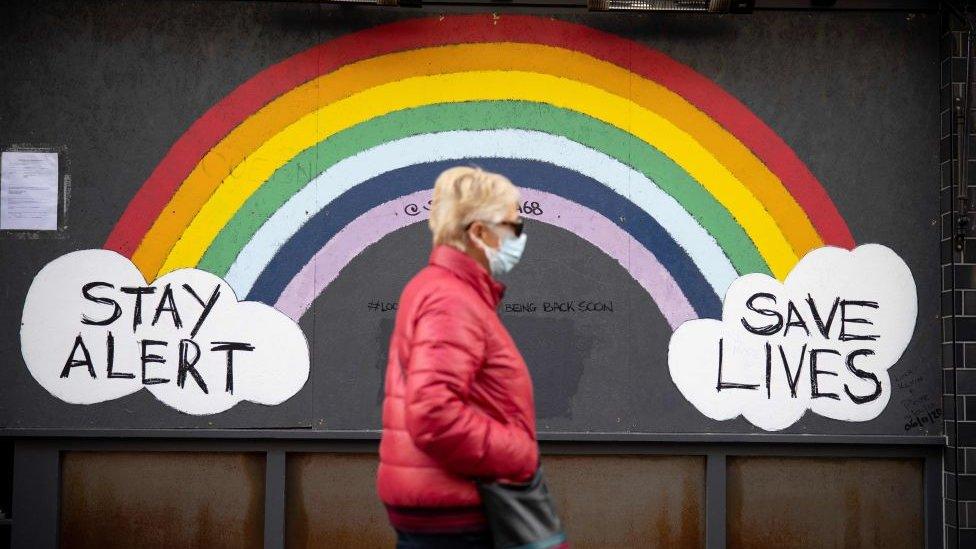Covid: Teen's heart transplant after rare complication
- Published

"Osian has continually amazed the doctors and nurses with his resilience," say his parents
The parents of a teenager who received a heart transplant after developing a rare complication of Covid say he has been on a "courageous journey".
Osian Jones, 16, had three heart attacks after developing MISC-C (Multisystem Inflammatory syndrome in children associated with Covid).
Osian, from Barry, Vale of Glamorgan, first became unwell in February and received his transplant on 30 June.
He remains in intensive care at Middlesex's Harefield Hospital.
Osian was not aware he had Covid when he first became unwell and was taken to A&E.
He went on to have three heart attacks and was rushed from Cardiff's University Hospital of Wales to the intensive care unit at Bristol Children's Hospital.

Osian's family and friends have been raising money to support the family while he remains in hospital
His family were told he had MISC-C, a rare inflammatory syndrome associated with the virus that causes Covid-19.
With scarring on his heart he was put on an ECMO (extracorporeal membrane oxygenation) machine and began dialysis treatment.
Osian appeared to be recovering at first, but after facing a number of setbacks the decision was made to move him to Harefield Hospital in Middlesex where he received the lifesaving heart transplant.
His parents have been staying in Middlesex to be close to him in hospital and hope to stay there until he is discharged.
"Osian has continually amazed the doctors and nurses with his resilience, his positive attitude and most of all the way he has faced every step of this journey with bravery. We are so incredibly proud of him," said his parents.
"We are now focused on his recovery journey, and ultimately getting him home so that he can return to Stanwell sixth form where he will be doing his A levels with his friends."
Osian's family and friends have begun raising money to support the family while he remains in hospital.
Osian's school, Stanwell, in Penarth, has put on a non-school uniform day which raised more than £3,300.

Osian's school raised in excess of £3,300 from a non uniform day
A fundraising walk that took place in his hometown on his 16th birthday also raised over £2,000.
His supporters hope to raise more funds with a 5km (3 mile) walk around Penarth planned for 15 July.
Thanking their local community, Osian's parents Alexis and Andy, said: "Knowing that you are all behind us has given us enormous strength".
They said they had been "completely overwhelmed by the support for all the local events".
"Your efforts mean we can continue to focus on providing maximum support for Osian with his courageous journey to getting back home," they said.
A GoFundMe page has also been launched and aims to raise £30,000. Once the cost of Osian's parents staying with him during his recovery have been met, any additional funds raised will go to the Bristol Children's Hospital Charity.
What is MISC-C?
Also sometimes called Paediatric Inflammatory Multisystem Syndrome (PIMS), external, the rare complication of coronavirus occurs mainly in children of school-age, but occasionally in infants or young adults.
According to NHS Inform, children with the condition generally develop mild to no symptoms at the time of their coronavirus infection, and usually start to develop MISC-C symptoms about four to six weeks later. Children with MISC-C have a temperature over 38°C (100F) that lasts for at least three to four days.
Other common symptoms include a red rash (spots or blotches) which may be there all the time or come and go, red eyes (conjunctivitis) which are not sticky or itchy, abdominal pain which might be severe, vomiting and/or diarrhoea, sore throat, cough, breathlessness, swollen glands, sore red mouth, swollen hands and feet, headache, dizziness, sleepiness or confusion.
There are no specific tests for MISC-C. Doctors diagnose by looking at levels of inflammation in the body through blood tests, and at how well parts of the body are working, alongside common symptoms.
Related topics
- Published5 April 2022

- Published12 May 2021

